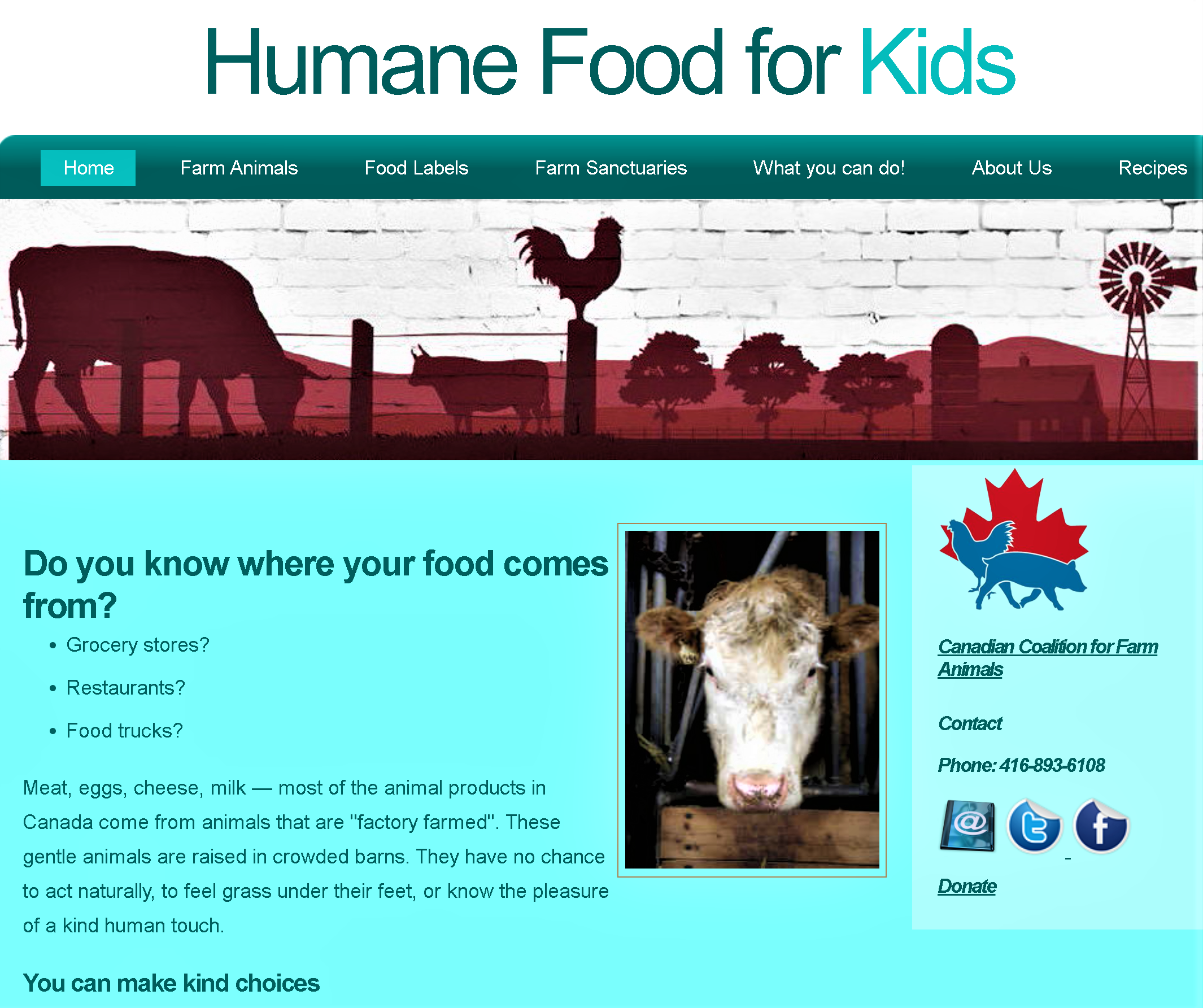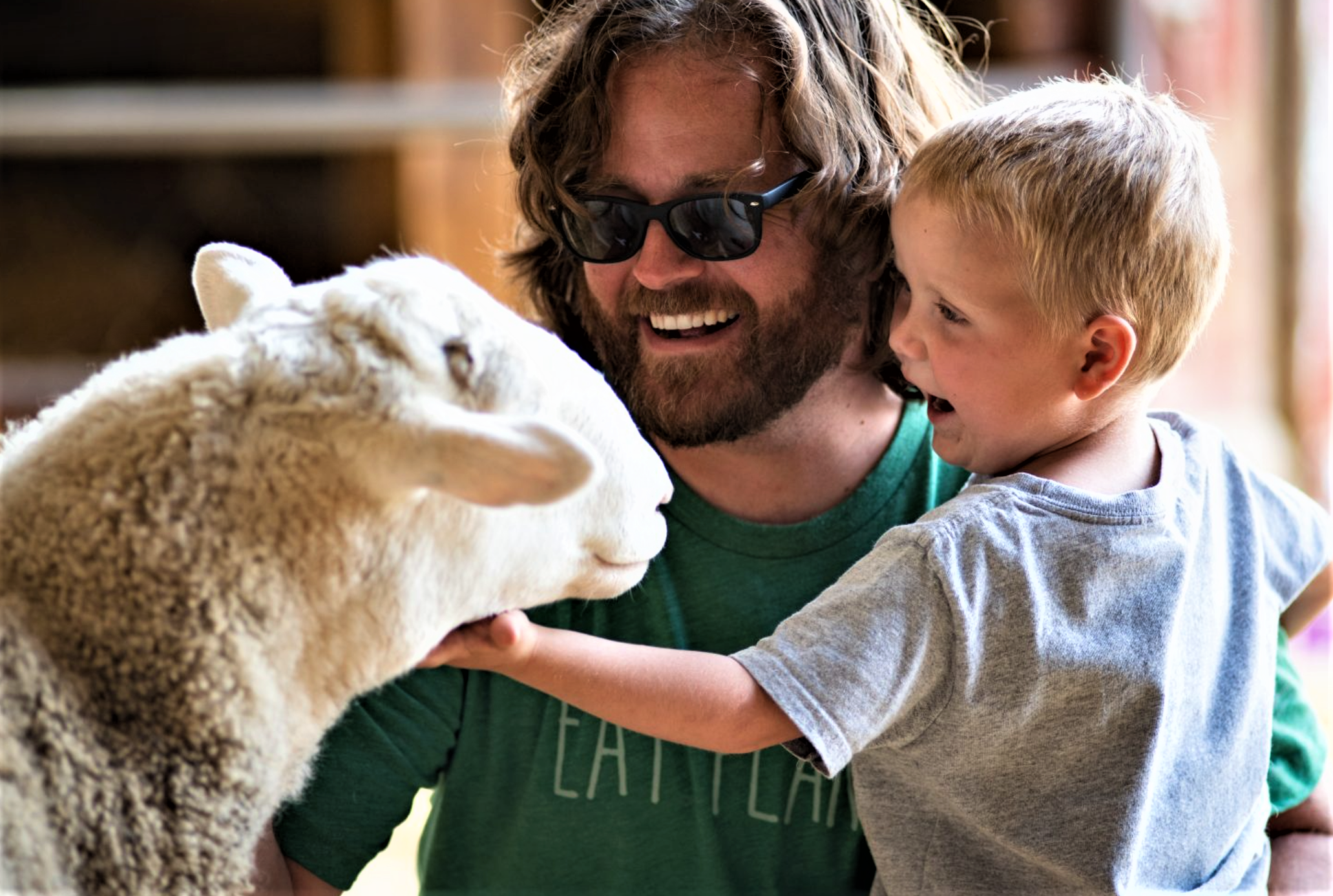By Jessica Scott-Reid
Jessica is a Canadian writer, animal advocate and plant-based food expert. Her work appears regularly in media across Canada and the US.
Growing up as a kid in Canada in the ‘90s, fast food was a normal part of life. Most Fridays after school my mom would buy me a Happy Meal from McDonald’s (albeit after a week of persistently pushing healthy foods), complete with collectable toys and sometimes even an apple pie. Those toys were must-haves: a series of plastic figurines from the latest Disney film, mini Barbies or sports memorabilia. They helped entice us kids toward the mediocre cheeseburgers, and always kept us coming back for more. It was a clever strategy and certainly helped keep our minds far, far away from the actual origins of the food. But, while McDonald’s may have gotten marketing meat to kids down to a successful science, the evolution of social media now allows for an even wider variety of selling opportunities; no longer does beef need Barbie to get kids’ attention, it has TikTok and Facebook.
As previously reported by Planet Friendly News, a study from the University of Ottawa found that nearly three-quarters of Canadian children are exposed to food marketing while using social media. Kids see an estimated 111 advertisements for food a week, or an average of 5,772 ads per year via platforms such as Facebook, Instagram, Snapchat, Twitter and YouTube, often depicting unhealthy fast foods, including meat, dairy and eggs, in manipulatively favourable ways.
Photo: Amina Filkins from Pexels
But advertising is not the only way meat, dairy and eggs gets marketed to kids. Programs like Agriculture in the Classroom (AITC), backed by funders such as Bayer-Monsanto, Cargill and the Canadian Cattlemen’s Foundation, are also reaching children right in their own schools, promoting self-serving depictions of animal agriculture and nutrition as education. The dairy industry in Canada has similar school programs.
“I think it’s awful,” says Anne Griffin, director of animal advocacy group Canadian Coalition for Farm Animals (CCFA), of the marketing of animal-based foods to children. “They are obviously covering things up.” And regarding AITC-type programs, she adds: “If they told the truth to students I think it would be a good thing. But they’re not.”
Revealing to children the often-hidden truths about meat, dairy and egg production is part of the motivation behind CCFA’s new initiative, a website entitled Humane Food For Kids. The site is an online resource for young people seeking information about how animal products are made, with a particular focus on factory farming, and offers assistance for making alternative, plant-based food choices.
“It’s to get kids to think about farm animals and how they are treated, the lives they lead” says Griffin, and to hopefully inspire them to go, or work towards going, plant-based. “Sadly, most kids have no idea about factory farming. They think it's like Old MacDonald's farm, where the animals are in the pasture,” she says, thanks in large part to false advertising and deceptive children’s stories. “But if kids see [the truth about animal farming] and then realize there are meat-less options," she adds, "they would be more likely to try them. I wish it was this easy when I was a kid. I'd have given up meat much sooner.”
Another program helping children consider the plight of animals when making food choices is ProVeg UK's School Plates program. The program works with school catering teams to increase the availability of plant-based school meals. Since the start of the 2020/2021 school year, it has been implemented in over 765 schools, and has helped educate over 165,000 students. ProVeg's UK Director Jimmy Pierson said in an interview on the group's webpage that he is now looking forward to "measuring the impact of our work in terms of meals swapped, animals spared, and emissions saved."
Griffin says focusing on children in particular stems from her belief that they are more likely to connect with animals. “Most adults have already been ingrained that we need to eat meat,” she says, again due in large part to advertising and meat-centric food education. Children, on the other hand, "are the future," she says, and offer great hope for change.
Photo: farmsanctuary.org
Another organization, Balanced, founded by educator and mom Audrey Lawson-Sanchez, is dedicated to making healthy eating easier and more realistic for children and families by championing healthier food environments in schools, hospitals, universities, offices and institutions.
Responding to skyrocketing rates of diet-related diseases — especially in children — Balanced describes their mission as: “We believe a food system that prioritizes health is possible and we work tirelessly to demand better from the companies that feed our families.”
And there is hope. Statistics show that over the last five years plant-based eating has grown rapidly among younger generations. Starting in 2016, The Guardian reported in a piece called “The Rise of the Vegan Teenager”, that the growth of veganism was being “driven by the young” in the UK. In 2018, research company Statista then found that “younger generations have taken on the [vegan] diet at nearly double the rate of older Americans,” stating “where only 2.5 percent of Americans over the age of 50 consider themselves vegetarian, 7.5 percent of Millennials and Gen Z have given up meat.” And in 2020, a survey conducted by food company Aramark found that 65 percent of Gen Z (those born in 1997 or after) want a more “plant-forward” diet, and 79 percent eat meatless meals once or twice a week.
While meat, dairy and egg marketers continue to target children, increasing information about the negative impacts of animal-based foods on human health, the planet and the animals, and more resources such as CCFA’s Humane Food for Kids, promise to support more young people to make different choices.
For me, now all grown up with a little kid of my own, I’m just happy that the classic apple pie from McDonald’s is vegan.




